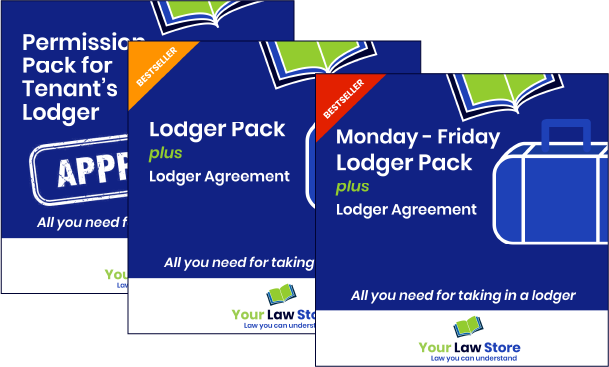Is your property in a proper condition?
The condition of your property
Landlords who are not lodger landlords are subject to various rules relating to the condition of the property. These are set out, in England, in the Landlord & Tenant Act 1985, ie
- The ‘statutory repairing covenants’ (section 11 onwards), and
- The ‘fitness for habitation’ rules (sections 9A and 9B)
In Wales, the rules are set out in Part 4 of the Renting Homes (Wales) Act 2016.
However, you will be happy to know that, provided you don’t allow your tenant to acquire a tenancy or (in Wales) an occupation contract, these rules will not apply to you.
However, this does not mean that it is all right for your property to be in bad repair! You will still have a common law duty to provide accommodation which is fit for purpose.
Room sizes
If you take in more than two lodgers and your property is classed as an HMO, note that there are minimum bedroom sizes of 6.51m² for one person over 10, 10.22m² for two over 10, and 4.64m² for a child under 10.
If your property is not an HMO, the rules are less strict, but it’s best to keep to these standards if possible.
The Local Authority’s powers
It is not often realised that local authorities have a general duty, under the Housing Act 2004, to make sure that residential properties in their area- *all* residential properties, not just HMOs – are in a fit and proper condition.
If a complaint is made to them, they will attend and carry out an inspection under the Housing Health and Safety Rating System (HHSRS).
Under the HHSRS, the property is checked against 29 hazards (such as ‘excess cold’, the danger of falls and electrical hazards). If the inspection shows that the property has any ‘category 1 hazards’ the Local Authority will serve an improvement order on the landlord (i.e. you!) requiring him to bring the property up to standard.
Hopefully, this will never happen to you (the HHSRS is more generally used to inspect HMOs).
However, you should make sure nonetheless, that your property, or at least the part used by your lodger, is in good condition. (Note, if you are interested you will find more about the HHSRS here)
Here are a few other matters (apart from gas which will be dealt with separately) to watch out for:
Electrical safety
If you want to check whether the electrical wiring in your property is safe, you should be able to get your electricity supplier to inspect it free of charge. However, be careful as if they think it is unsafe, they will cut your supply off until repairs are done.
Note that there are Electrical Safety Standard regulations in England, but these do not apply to occupiers who share living accommodation with their landlord (ie lodgers!).
However, despite this, it is a good idea to have your electrical system and appliances checked at least once every five years.
Fire safety
Your local fire prevention officer can advise on fire safety. This is a free service and it is a good idea to obtain a report even if you are not taking in lodgers.
Note that there are regulations in England that require landlords to instal smoke and carbon monoxide alarms in rented properties. These do not apply to landlords who share living accommodation (such as a kitchen, bathroom or toilet) with their tenants or lodgers.
However, you are advised to fit smoke and carbon monoxide alarms anyway as a safety measure. They may also be required by your insurance policy.
Grants
There are sometimes grants available, particularly if your property is in poor condition, or if you want to carry out energy-saving improvements.
Contact your Local Authority (for general grants) and the Energy Savings Trust (www.energysavingtrust.org.uk) for energy-saving improvements. Your local Citizens Advice Bureau may also have a list of grant providers in your area.
Trading Standards
Trading standards officers (although they do bring prosecutions), generally believe that the most important part of their work is to help people understand and comply with all the various regulations they are there to enforce.
They are a very good source of information, are usually very friendly, and will have lots of useful leaflets. You can find your local office via the website here.
Vermin and insect infestation
This can happen to the best of us. Rats get everywhere, and if you have a cat or dog, flea infestation is often inevitable at some stage or other. It does not mean you are dirty!
Have a word with your local authority pest control service, which is often free or low cost, or speak to your vet, who can advise on getting rid of fleas on pets.
Finally
Remember that if your lodger suffers an injury because of your property not being in a proper condition, you could be sued for damages.
![]() Information flagged with the Welsh flag only applies in Wales.
Information flagged with the Welsh flag only applies in Wales.
Important note
This guide ONLY deals with lodger agreements where you are renting a room to a lodger in your own home.
If you require information about tenancies with resident landlords and Welsh occupation contracts, you need the Landlord Law site.
